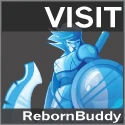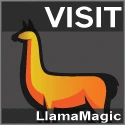@ Ehnoah and ALL
THE FINAL LAW IS ON THE 12.01.2017
Bossland vs. Blizzard: Verhandlung gegen Bot-Anbieter am BGH (1/2) (IN GERMAN/DEUTSCH)
For ALL other they cant Speak German
In the ongoing feud of Blizzard with bot vendors, on 6th October 2016, there were two methods to the showdown before the BGH.
The game provider had allowed Bossland GmbH to ban two bots for World of Warcraft. In a second case, he had succeeded in causing Bossland to no longer duplicate the client software for commercial purposes. Bossland had filed an appeal against both judgments.
The procedure for using the client has lost Bossland (we reported). The judgment on the first proceedings is still pending. However, Bossland should have little prospect of success, so our impression from the hearing.
What is the background?
Blizzard, the developer and provider of games like World of Warcraft (WoW) and Diablo III, has been active for a long time actively against the use of bots in their own games. In doing so, the company not only blocks accounts from players using bots. Blizzard wants to combat the phenomenon at the root and is leading numerous processes directly against the developers of such automation software. The trial against Bossland before the BGH was the next round in a fight for Bots for World of Warcraft, which has been going on for years, and on which we have reported several times.
Impressions from the competition: competition and trademark law
In the proceedings I ZR 253/14, Blizzard's complaint against the distribution of the bossland bots "Honorbuddy" and "Gatherbuddy" was discussed. Two fundamental questions arose. First, it was necessary to clarify whether the distribution of bots is already prohibited under competition law. Secondly, it was about whether the designation of the software as "World of Warcraft Bot" and "WOW Bot" infringed the trademark rights of Blizzard. Analyzes of the pre-instance judgment are given here, as well as - very extensively - by the colleagues of Telemedicus.
competition law
In the competition dispute, the judges first observed that German law was applicable to the action. This is based on Article 40 (1) (1) of the Civil Code and Article 6 of the Rome II Regulation. The regulation of § 3 TMG, which is used by the lower court, is not a collision standard. Blizzard was also a competitor to Bossland.
Required for the disputed obstruction according to § 4 No. 10 UWG a.F. (Now § 4 no. 4 UWG) is that the prohibition of automation software contained in the terms of use is binding for the players. The question was raised about the legal nature and verifiability of the rules of the game. While the Landgericht had classified the WoW-Spielregeln at first instance as legally control-free, the OLG had left this question expressly open. The BGH now indicated that it could possibly be about GTC.
The chairman, Prof. Dr. Büscher, stated that players of an MMORPG usually conclude two contracts: A first contract conclusion is made when purchasing the client software, a second when setting up the Battle.net account. This probably does not change the UsedSoft decision. He explained that the ECJ had not even dealt with a work consisting of several programs. In terms of content, the question of the transparency of clauses should also be examined. However, they used the concept of automation software (Bots).
According to BGH, an indirect influence on the game in the area of competition law may be that the players are misled into using the automation software. They can no longer be measured and communicated with each other without restriction. It also had to be clarified how to deal with the question that Blizzard itself offers additions to his game.
The BGH acknowledged great doubts in the presentation of the revision that concrete losses would have to be put forward for a competition offense. A certain prognosis is also necessary in the case of preventive injunctive relief, the defendant's lawyer argued. This, however, contradicts both the commentary and the explicit wording of the legal foundation. Moreover, reactions from dissatisfied customers were also cited specifically.
Just as critically, the judges saw the argument, Bot software could also attract new players. It is doubtful whether Blizzard would win such bot-motivated players as customers at all.
Trademark law
With regard to the questions of trademark law, the Federal Court of Justice initially declared that Article 12 of the Community Trademark Regulation (CTMR) did not allow legitimate companies to use foreign marks such as their own trade marks. An infringement may also arise in particular if the distribution of the product thus marked is unfair under competition law.
It became clear that the question of the applicable law for the claim for damages and damages is a question which needs to be clarified. This reminded the BGH of his "Gartenpavillon" -project at the ECJ (decision of 16.08.2012, Az. I ZR 74/10). The legal assessment is still to be clarified. In the then decision of the ECJ, the Attorney General had probably adopted the theory of the Mosai, but the theory of unity was also conceivable. The literature has different views on this, partly without problem awareness. The BGH explicitly pointed out that the distribution of such software via the Internet may also have to be treated differently from the distribution of physical products across Europe. The question was still to be examined.
Conclusion
For the Federal Court of Justice (BGH), some legal questions remain open, in particular under trademark law. So it was not completely surprising that no judgment had been passed on 6 October 2016. The Federal Court of Justice decided on Thursday, 12 January 2017, to make a decision.
Both Bossland procedures are of great importance to game developers and publishers who want to defend themselves against bot vendors. Although the decision has not yet been taken in the competition and trademark-based process, judges tended to tend to share Blizzard's view.
In both cases, of course, it remains to be seen how the BGH justifies its decisions. We will report!
Note: This post is based on the impressions from the hearing. The full text of the decisions is not yet available. It is merely a preliminary presentation of the course of the hearing and no legal representation of the dispute.






